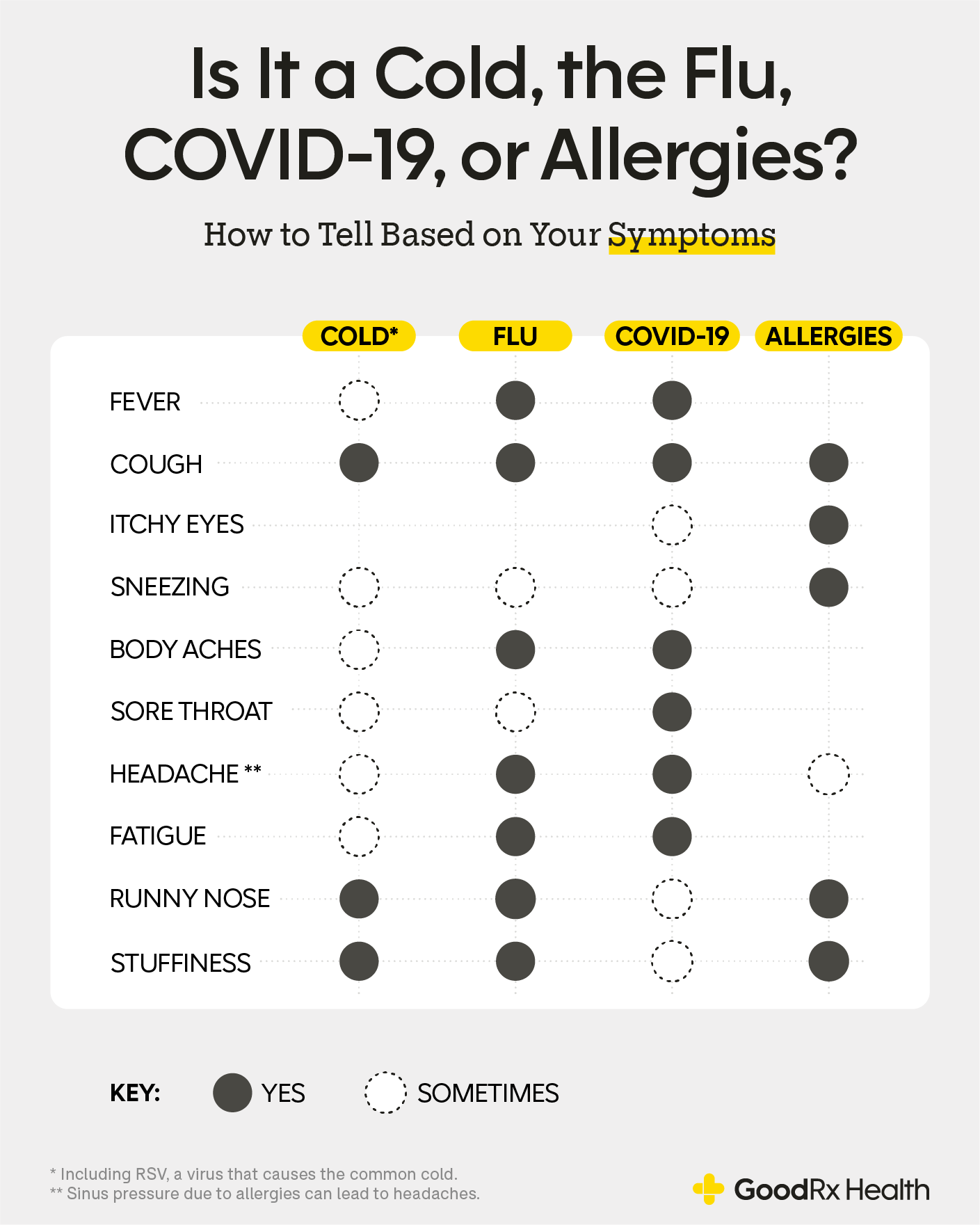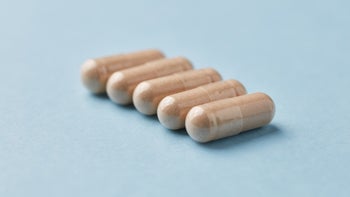
Natural Flu Remedies That Help Get Rid of Flu Symptoms at Home
Key takeaways:
The flu (influenza) can spread quickly from one person to another during the winter months.
Natural flu remedies — like fluids, vitamin C, zinc, and rest — can help you recover.
Home remedies for the flu are easy for the whole family and can lessen flu symptoms.
Table of contents

Influenza, or “the flu,” is a common wintertime illness. It can take days or even weeks to get over the flu. And during that time, you may feel miserable.
Go-to flu treatments include both prescription medications — like Tamiflu (oseltamivir) — and over-the-counter (OTC) medications. But flu remedies at home can also help manage your flu symptoms. Some of these include washing your hands and drinking plenty of water to stay hydrated. Let’s take a look at flu home remedies that can help you and your family feel better faster during flu season.
How do you know if you have influenza?
When it’s flu season, every sniffle can make you wonder if you have the flu. But other respiratory illnesses — including the common cold, respiratory syncytial virus (RSV), and COVID-19 — are common during the winter months. And that can make it hard to know the cause of your symptoms.
Search and compare options
Typical symptoms of the flu include:
Fever
Cough
Headache
Fatigue
Sore throat
Muscle soreness
Vomiting and/or diarrhea

Should you get a flu test before you start treatment?
You don’t always need to get a flu test if you think you have the flu. But if you want to start prescription anti-flu medications, like Tamiflu, you need a flu test first. Antiviral flu medications work best if you take them within 48 hours of when your symptoms start.
People who get the most benefit from Tamiflu include:
Children younger than 5 years old
Adults 65 years old and older
Pregnant women
People with chronic lung conditions, like chronic obstructive pulmonary disease (COPD) or asthma
People with a weak immune system
Whether or not you start Tamiflu, you don’t need to wait to start flu home remedies. You can use natural flu remedies anytime, even without a flu test.
What are some natural at-home flu remedies?
Taking care of yourself when you’re sick doesn’t need to be too complex. In fact, when your body is fighting the flu, it makes sense to get back to the basics.
Here are 11 natural flu remedies that might help you feel better faster.
Flu recovery timeline: Learn the stages of the flu and what to expect as you recover.
Should you get a flu vaccine? Here’s how the flu vaccine helps protect you from severe illness and from getting the flu in the first place.
What the flu feels like: Getting the flu is a different experience for everyone. Several people share what the flu felt like for them.
1. Get lots of rest
Don’t try to maintain your regular schedule if you have influenza. Listen to your body — you probably feel exhausted. Your immune system has extra work to do while you’re sick. By sleeping more than usual, you can conserve energy and give your immune system what it needs to do its job.
2. Drink plenty of fluids
You may not welcome the idea of swallowing if you have a sore throat. And this can make it easy to end up dehydrated. A fever can dry you out: The moisture inside your lungs will evaporate fast when your body temperature is high. Dry winter air makes this problem even worse.
A dry throat and nose can thicken mucus and make it hard to clear. So do your best to stay hydrated by taking frequent sips of water or another drink that’s appealing to you. In addition to water, consider drinks that contain electrolytes. This will help keep your immune system working at its best.
Read more like this
Explore these related articles, suggested for readers like you.
3. Get some fresh air
For most of the world, flu season happens in the winter. When it’s cold outside, indoor air gets heated, and that removes humidity. This dry air can increase congestion in your nose and irritate your throat and lungs.
Spending some time outside can soothe your breathing and make you feel refreshed. Just make sure you bundle up to keep yourself warm.
4. Try vitamin C and zinc
To help manage flu symptoms, you can consider taking OTC supplements, including:
Vitamin C: Lots of people swear by vitamin C to help with cold and flu symptoms. But hard evidence is lacking. Some research shows that taking vitamin C before a cold starts can ease its symptoms and shorten its length. You can try a supplement or just eat foods that are high in vitamin C. Just limit your total vitamin C to under 1,000 mg per day.
Zinc: Many zinc products claim to help prevent or manage cold and flu symptoms. There’s some evidence that zinc supplements can reduce cold symptoms if you start taking them as soon as your symptoms come on. While it’s not a sure way to lessen flu symptoms, zinc lozenges or syrup may help you feel better.
5. Take probiotics
Probiotics are natural bacteria that supplement your gut’s microbiome and stimulate your immune response. You can take an OTC probiotic supplement or eat probiotic-rich foods, like cultured or fermented products. Some research suggests that taking probiotics can help shorten flu symptoms.
6. Use a nasal irrigator
A nasal irrigator is a squeeze bottle or other device that lets you flush the inside of your nose with saline. This washes away mucus and moisturizes your nose.
Make sure to use sterile water with your irrigator or neti pot. Don’t use water straight from the tap, as this can put you at risk for serious infections.
7. Gargle with saltwater
Similar to how the nasal irrigator works for your nose, a saltwater gargle can help soothe a sore throat. The salt pulls water from surrounding tissues to decrease inflammation, wash out mucus, and provide moisture.
8. Drink clear broth, or eat soup
Heated broth is a classic “old-fashioned” natural remedy for the flu. In addition to helping you stay hydrated, broth contains electrolytes to keep your body in balance.
The steam from heated broth or soup can help soothe your dry nose and throat. And small pieces of meat, rice, noodles, or vegetables in the soup can be a gentle way to get some calories when you don’t feel like eating much.
9. Try some essential oils
Certain essential oils — such as tea tree oil, lemon oil, and eucalyptus oil — can help you feel better when you have the flu. Use a diffusing device, or simply allow the scent to waft through the air around you. You can also add essential oils to a warm bath or use them for massage. The scent can open blocked nasal passages and help you breathe easier.
10. Use a humidifier
A humidifier adds moisture to dry, indoor air. Humidifiers come in two types: heated and cool mist. Heated humidifiers can cause burns if they tip over or spill. So a cool mist humidifier may be better if you have small children at home. Whichever you choose, clean your humidifier regularly so it doesn’t become a home for fungus.
11. Drink herbal tea
Tea can be a pleasant way to stay hydrated when you’re sick. Some teas, like green tea, may also lower your risk of getting sick with the flu and other viruses. The steam from hot tea can cleanse and moisturize nasal passages too.
Many people add honey as a sweetener, which can help suppress a cough. (Just don’t give it to children under 1 year old.) And adding lemon can be useful to help break up congestion and mucus.
Which home remedies should you avoid if you have the flu?
Many home flu remedies are safe and can even be helpful. But there are a few ideas out there that can make things worse. Here are some home remedies to avoid:
Aspirin: Although most OTC cold medications and fever reducers are fine to take when you have the flu, aspirin is linked to Reye’s syndrome. This condition is most common in children who have the flu, and it can cause liver or brain damage in severe cases.
Cold baths: Soaking in a tub can be relaxing when you’re sick, but the water doesn’t need to be cold to reduce a fever. Remember that your normal body temperature is around 98.6°F. A warm bath is usually about 92°F, which is already much cooler.
Calorie restriction: Maybe you’ve heard the saying, “feed a cold, starve a fever.” Although this is a catchy phrase, there’s no scientific evidence to support it. Your body needs calories so your immune system can overcome the infection. You may not have much of an appetite, but certain foods can help you feel better.
How long will it take you to recover from influenza?
Flu symptoms tend to come on rapidly. Often, they’re at their worst during the first 4 or 5 days. After that, symptoms will slowly go away over the next few days. In total, most people are sick for 7 to 10 days. But symptoms can linger for up to 2 weeks.
If you’ve had your yearly flu shot, your symptoms will likely be less severe and go away faster. Keep in mind that flu season in the U.S. generally runs from October through May. While it’s never really too late to get a flu shot, it’s best to get it right before the start of the season.
Frequently asked questions
There's no guarantee that a specific home remedy for the flu will make you feel better faster. Do your best to listen to your body and pay attention to your symptoms. If you have a sore throat, for example, saltwater gargles and honey can be great options. And in general, rest and quality sleep can go a long way in helping you recover.
You can’t really “flush out” the flu, but staying hydrated is key to recovery. There are lots of great options when it comes to hydration, from plain water to herbal teas and soothing broth.
Antiviral flu medications like Tamiflu help prevent the flu virus from making more copies of itself. And this helps stop it from spreading in your body. Antiviral medications don’t really “kill” the flu virus, but they can help you feel better faster.
The bottom line
There are many treatments that can help you get rid of the flu. From prescription to OTC medications, treatments can help you feel better faster. If you prefer natural flu remedies, tea, fluids, and nasal saline can also lessen your flu symptoms. Home remedies — like saltwater gargles, chicken soup, and plenty of fluids — can also help you manage flu symptoms.
Why trust our experts?



References
Centers for Disease Control and Prevention. (2024). Signs and symptoms of flu.
Mousa, H. A. (2017). Prevention and treatment of influenza, influenza-like illness, and common cold by herbal, complementary, and natural therapies. Journal Evidence Based Complementary Alternative Medicine.
National Center for Complementary and Integrative Health. (2024) 5 tips: Natural products for the flu and colds: What does the science say?
Umeda, M., et al. (2021). Preventive effects of tea and tea catechins against influenza and acute upper respiratory tract infections: A systematic review and meta-analysis. European Journal of Nutrition.
U.S. Office of Dietary Supplements. (2022). Zinc: Fact sheet for health professionals. National Institutes of Health.





























